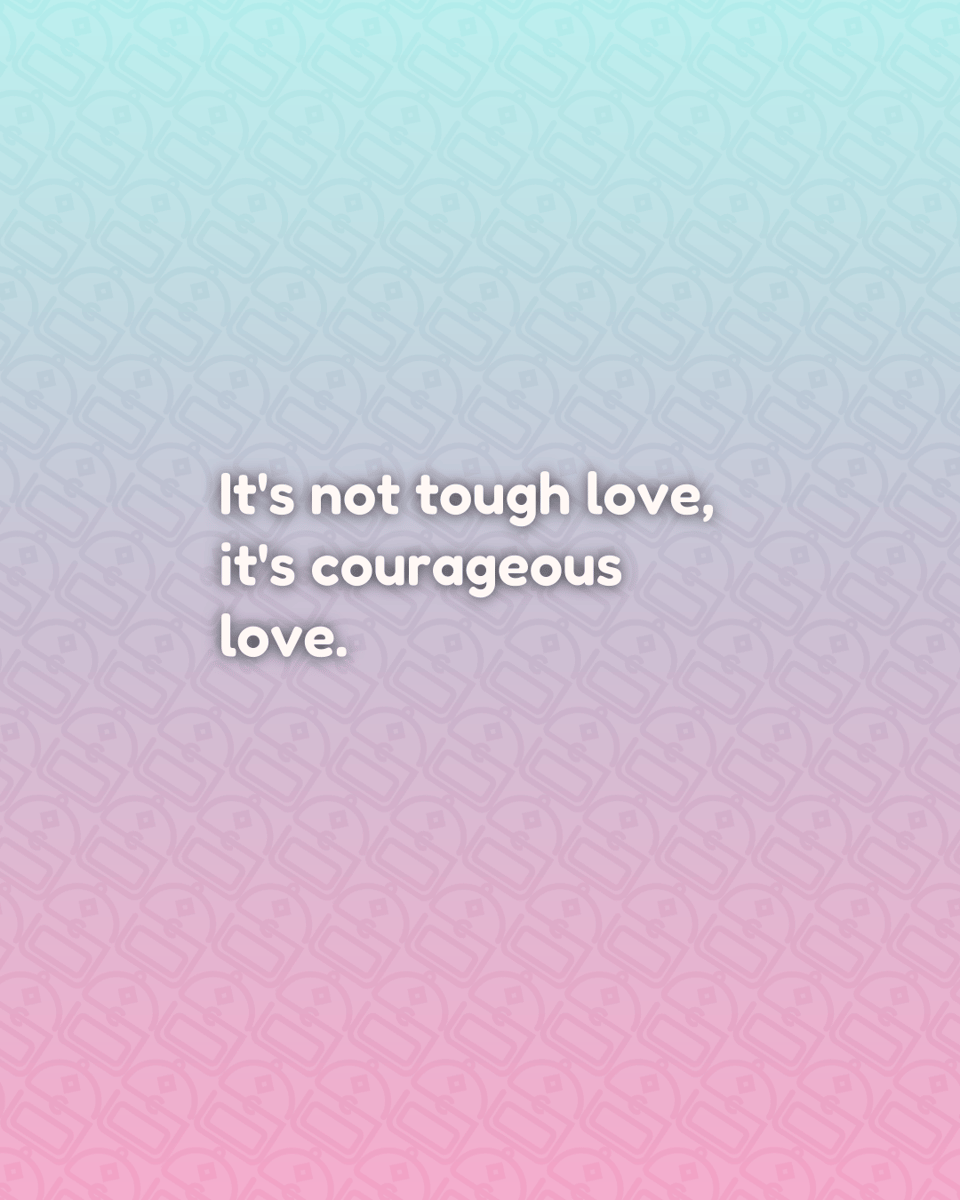Tough love
I once had someone tell me they didn't find person centred counselling useful, because they needed to hear difficult truths and be shown tough love.
I've been thinking about this conversation as I move into radical compassion.
The idea of tough love is that you say something sternly or harshly in order to help them in the long run. Same with difficult truths. Something difficult to hear in order to stop avoiding something. They're both about bringing about improvement and not shying away from difficult conversations.
This is important, there are times where this type of conversation is needed. It could be a relationship that you value but something needs to change. It could be an employee who needs to hear about a performance issue. It could be me as a counsellor, not shying away from saying difficult things to my client, in order to help them explore.
Putting the love in tough love

I've been more mean to myself than basically anyone else in my life at this point. I am often tough on myself, setting high expectations. I'm getting a lot better, but there's still work to be done on deconstructing my self image as a high performer.
I think sometimes, when we envision getting tough love, we think of the difficult conversation, the lightning bolt of realising you've hurt someone, or you're not performing your best. Something shocking and true that rocks us. We don't think about compassion, or love.
In a past life, I probably would've said I preferred tough love. Don't sugar coat it, don't try to spare my feelings, just tell me. I think this is familiar, a lot of people feel like this.
I still prefer straight forward conversations, without trying to decipher people's feelings and needs and expectations. But I think the focus on 'don't spare my feelings' is an interesting one.
On the one hand, people can be hurt and defensive when told a truth they weren't fully aware of, or didn't think they were showing outwardly, or they see it as a criticism.
On the other, you can be compassionate and that doesn't negate telling the truth, or setting boundaries, or whatever else you need to do.
I can have tough conversations with myself, but I often don't show myself love alongside it. I've internalised the idea that being compassionate while having tough conversations is the same as softening the message, and it's not. I can say 'hey, this is a boundary' while also showing compassion to the person who is overstepping a boundary. I can talk to myself about things I want to do better or where I'm falling short and not shy away from it.
It's the love part that I find difficult.
The unconditional love I receive from people in my life is humbling and empowering at the same time. The unfaltering support and space that not only I am given but I can now accept makes everything feel different.
It's freeing, in a way, to know and believe that I am supported and loved. It makes these conversations easier, both with others, and myself. It means that even being told that I need to improve or make a change, it doesn't feel like the end of the world (or at least, it only feels like that until I sit with my feelings and work through them).
Courage
One of the personal moral qualities of the BACP is courage.
Courage: the capacity to act in spite of known fears, risks and uncertainty.
This is where the love of tough love comes from for me. We talk about things that are difficult both because of and with love and care. As a therapist, part of my job is to be courageous in sessions (and out), and not shy away from hard conversations because of our own anxieties, not wanting to cause pain, or any other reason, really.
It's not tough love, it's courageous love. This is the part of touch love that is the hardest, I think. It's doing it from a place of love, not anger, not frustration (though you can hold those emotions as well). Its the courage to love while giving that news, or pointing out that pattern, or sitting with someone while they go through something.
Sidenote: another side of courageous love that applies to me as a person-centred therapist is the courage to sit with someone and not try to fix, or 'make someone feel better'. It's knowing that you know yourself well enough to stay grounded, and offer that space to someone else.
I dunno, I just think maybe instead of tough love, we could call it courageous love.
Add a comment: